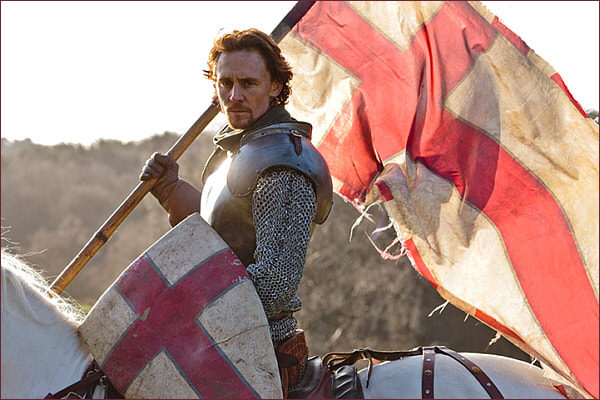|
Today (October 25) is St. Crispin’s Day. On this day in 1415, the English Army had its greatest victory at the Battle of Agincourt in today’s Azincourt, France. This battle is memorialized in Shakespeare’s Henry V where the titular character gives a stirring speech known as the “St. Crispin’s Day Speech” where the phrase “band of brothers” originated. I’d like to think that it has something to do with us having a right to keep and bear arms and a Second Amendment in our time. This story shall the good man teach his son; The battle took place as part of the Hundred Years’ War, one of the many battles between the English and the French over the French throne. The English army was headed back to England when the French cut them off from the Channel thus requiring King Henry and his men to fight their way out. Historical accounts vary, but the English were at approximately half-strength and wildly outnumbered. The French correctly assumed the battle would be a slaughter, but guessed wrong on who the victor would be. The English arrayed themselves in one line of mostly archers on the wings to funnel the French into the infantry into the center. The French had full forces of archers, infantry, and cavalry. The cavalry charged the English lines intending to break the battle lines for the French infantry to then exploit the chaos. But what happened marked the rise of projectile weapons and distance warfare. The English longbow was a fearsome weapon. It was tall, strong and its arrow was capable of penetrating armor, whereas more conventional short bows and crossbows couldn’t, or struggled, to do this. Longbows could shot hundreds of yards relatively accurately. They were “wonder weapons.” Volleys of arrows could fill the sky and cover vast sections of troops, a lot like blackpowder musket volley fire and the machine gun “beaten zone” concepts. English troops could kill at a distance with impunity, reducing their enemy before they got close. That’s exactly what happened at Agincourt. Longbowmen picked off the French cavalry charge, which was never able to regroup for second attack. The English lines held. As the French infantry marched on in increasing disarray, the archers continued to shoot, winnowing down the forces as they struggled to cross a muddy field. By the time the French arrived at the English lines for hand-to-hand combat, they had been diminished considerably. The day lead to victory for the English and has become an immortal part of our culture, thanks in part to William Shakespeare. But more so, this victory and others before it in the war, lead to a reverence for the longbow, even as tactics changed to blunt its effectiveness in battle and gunpowder became common. Now at this time, English armies were typically raised from volunteers and militias. The citizen-soldier concept is an old one. Englishmen kept their weapons at home and were often obligated to do so. Longbow practice was required. In fact, ownership of firearms and shooting with them was restricted in favor of the longbow into the reign of Henry VIII specifically to keep that skill alive. Despite what anti-gunners might claim about English firearm laws in the 16th and 17th century, those laws were not intended to deprive the average, Protestant Englishman of firearms. With the demonstration at Agincourt of what long-distance projectile fire could do, firearms were now a viable concept. Technology just had to catch up, and it did. Firearms required less skill than longbows (thus the English drive to preserve archery skill), while giving much of the same advantage. As firearms became common and finally supplanted longbows, English militia men began keeping firearms at home, supplanting their bows and hand-to-hand weapons. By the time of the American colonies, it was de rigeur that the colonists would have firearms at home. The English tradition of armed individuals for combat was hundreds of years old by the time of the Revolution. In England, one didn’t have the same need for a firearm as American colonists and frontiersman did. England was a relatively peaceful place. The wolves and other wild beasts had been extirpated ages ago. While English and Scots warred amongst themselves in particular, there was no hostile, native population like our Indians that attacked farmers. Self-defense against thugs was done by hand with knives or clubs as useful pistols didn’t really exist. What made firearms common and necessary for survival in America didn’t exist in England. Rather, aside from isolated sport, Englishmen had weapons to practice and maintain their skill at the art of war. Firearm ownership was born in the idea that every man was capable of being a soldier and should practice that skill. So while there are many reasons how and why the right to keep and bear arms and the militia system came to be established in our Anglo-American tradition, it’s nice to think that this day, so well celebrated by the Bard, is responsible for our Second Amendment. Watch the video. Kenneth Branagh is absolutely spectacular and it's one of the most rousing speeches you'll ever hear. Comments are closed.
|
Archives
June 2024
CategoriesBlog roll
Clayton E. Cramer Gun Watch Gun Free Zone The War on Guns Commander Zero The View From Out West |

 RSS Feed
RSS Feed